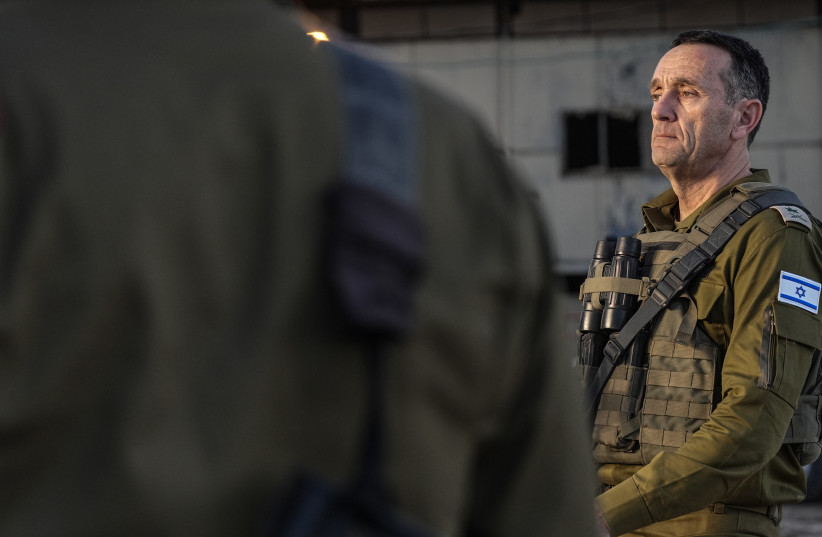Major General Yehuda Fuchs, who recently announced his retirement as Commander of the Central Command, is highly qualified to replace the outgoing Head of Military Intelligence, Major General Aharon Haliva. IDF sources revealed that Chief of Staff Herzi Halevi was not surprised by Haliva's resignation announcement on Monday, which was "agreed upon in a gentlemanly manner" to avoid a greater disruption.
Military and security sources indicated that this situation requires an experienced leader for Military Intelligence, not a young officer taking on their first role as Major General. This reference is likely aimed at Brigadier General Shlomi Binder, the current Head of Operations, who might have been involved in the events leading up to the October 7 attack and in the initial hours in Gaza following the attack.
Thus, according to these sources, the Defense Minister must appoint a senior officer. One of the names mentioned is Fuchs, who is completing his role as Commander of the Central Command and has previously served as the IDF's attaché in Washington.
New Intelligence head must be experienced
At the moment, Chief of Staff Halevi has full support from Defense Minister Yoav Gallant, allowing them to make decisions on upcoming appointments to the General Staff despite political and public criticism. Opposition has already arisen against the intention to promote Brigadier General Shlomi Binder. An insider explained, "The Chief of Staff doesn't have candidates lined up who are suitable for the position. There just aren't any."
The evolving situation at the top of the military leaves many questions and poses considerable challenges for Halevi. His first task will be to "stabilize the ship," which suffered a blow today. The expectation is that Halevi, with a new communication mechanism, will stabilize the system and manage the flow of information and its timing.

The next step involves identifying which senior officials, including the commander of Unit 8200, will announce their departure without notifying the Chief of Staff.
Military sources note that some senior officers are still assessing their own situations to determine their likelihood of withstanding anticipated criticism. This has prompted the Chief of Staff to maintain stable and fair relationships with most high-ranking officers, minimizing surprise decisions. Some military sources describe this approach as "gentle steering."
Meanwhile, an upcoming ground operation in the Gaza Strip demands rigorous multi-branch coordination. This might explain the decision to have Major General Haliva continue in his role for a few more weeks.
Earlier this week, it was reported that the United States approved Israel's plan for operations in Rafah in exchange for a limited response toward Iran, according to an Egyptian source quoted in the Qatari newspaper Al-Araby Al-Jadeed. Cairo is also preparing along the border with the Gaza Strip for the possibility of an IDF ground entry into the city, identified by Israel as the last stronghold of Hamas.
